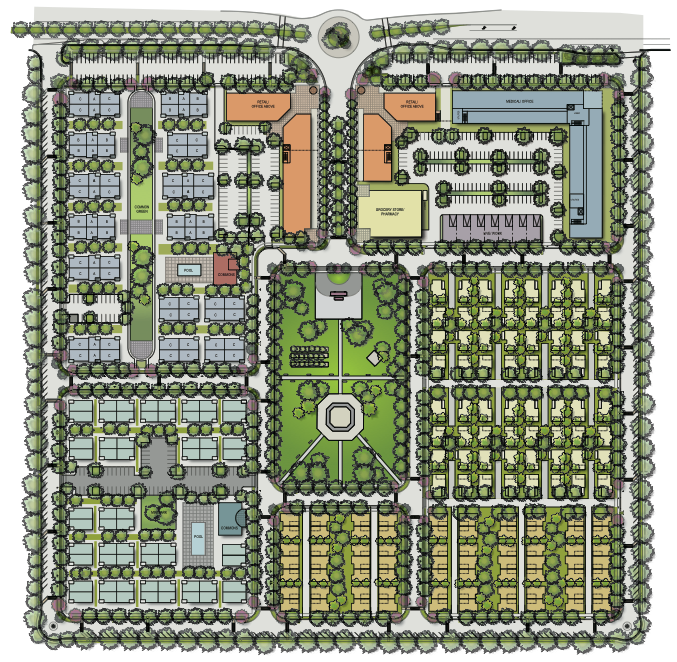
Buried in a five-hour long meeting of the Assembly Natural Resources Committee yesterday, a short discussion ended in a vote to move legislation that will delay the state's shift away from car-centric planning.
A.B. 779. The bill aims to slow the removal of Level of Service (LOS) from California environmental regulations by delaying implementation of guidelines currently being developed by the Governor's Office of Planning and Research (OPR).
In 2013, California passed S.B. 743 which required the OPR to develop a replacement for LOS that more closely reflects state climate change goals. OPR is planning to replace Level of Service with Vehicle Miles Traveled (VMT). Currently, the California Environmental Quality Act (CEQA) bases environmental impacts of traffic on LOS, which results in favoring car capacity over actual environmental benefits. A switch to measuring VMT changes the goal from "moving cars" to "reducing car trips."
“Just to be clear,” said Assemblymember Cristina Garcia, the bill's author, “this isn't about getting rid of VMT. VMT is a fine measure. This bill would press 'pause' on the process.”
The bill's sponsors claim that having to analyze VMT would be burdensome and duplicative, since in some cases they would still be required to produce an LOS analysis to meet local planning requirements.
However, that claim looks pretty specious, for several reasons.
For one, OPR's guidelines will excuse most true infill projects from any transportation analysis under CEQA, so there would be no need for “duplicative analyses.” This is because projects within a half mile of a major transit stop, as defined in the bill, would be exempt. It's useful to remember than an earlier draft of A.B. 779 would have removed the word “major” in this definition, thus would have exempted pretty much any kind of development near any bus stop anywhere in the state, no matter how sparse the transit service there.
Another point to keep in mind is that VMT analyses are much simpler than current LOS traffic studies. According to Ethan Elkind, a faculty member at the UCLA and UC Berkeley law schools who has written about the bill, OPR's proposed guidelines provide local governments more judicial deference for their VMT analysis than they currently have for LOS, which reduces the risk of being sued under CEQA.
“Infill projects come out way ahead with these proposed guidelines. It's the sprawl projects that will suffer, because they induce so much VMT,” adds Elkind.
OPR is scheduled to submit a second draft of its guidelines in the summer, which will be followed by a 45-day public comment period. There could be more drafts, and more public comment periods, if changes are substantial.
The co-chair of the committee, Assemblymember Das Williams, recommended voting yes based on the claims of the bill's sponsors, who call themselves the Infill Builders Federation. However, the members of this group build malls and office parks, not the kind of infill that, in the words of Assemblymember Garcia, result in “fewer cars on the road, less miles traveled, and a better economic life."
Williams and the rest of the committee ignored testimony from Meea Kang, the founder of a group of actual infill developers, the Council of Infill Builders.
Kang showed up at the hearing to officially oppose the bill. Kang had just come from a panel discussion at the TransForm Transportation Choices Summit, where she talked about the obstacles she faced building infill housing. She talked about NIMBYism, fear of density, inappropriate parking requirements, lack of supportive transit, and the process of figuring out how to provide transit passes to residents for thirty years. One thing she didn't mention was having to complete “duplicative analyses.”
“A number of infill builders are already using VMT as a measure,” she said at the hearing. This is because the kind of infill that produces the “fewer cars, less miles traveled” extolled by Assemblymember Garcia would benefit from VMT analysis.
S.B. 743, the CEQA reform bill that calls for replacing LOS, is creating “a sea change in how we analyze travel,” said Kang. “To stop now before the process is complete is short-sighted.”
She urged the state to keep moving towards finding ways of getting rid of greenhouse gas emissions. “This bill would roll that back,” she said. “We need to stay with the process.”
Despite the opposition of this infill builders group [PDF], and from a coalition of groups including the Natural Resources Defense Council, Greenbelt Alliance, and TransForm [PDF], the committee voted 7-0 to pass the bill onward. A.B. 779 goes next to the Assembly Appropriations Committee, and from there to the floor of the Assembly.





